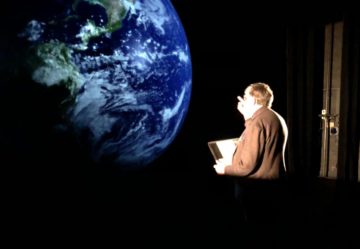Ava Kofman at n+1:
 ONE MAN ALONE can do very little. This was a precept held by Bruno Latour, among the most inventive and influential philosophers of postwar Europe. Latour did for science something similar to what Tolstoy, one of his heroes, did for history—namely, reveal that its landmark theories and discoveries, like epochal wars and revolutions, far from being the work of a few great men, were actually the product of careful coordination between an abundance of human and non-human actors. “A crowd may move a mountain; a single man cannot,” Latour wrote in The Pasteurization of France (1984), his unconventional study of Louis Pasteur. “If, therefore, we say of a man that he has moved a mountain, it is because he has been credited with (or has appropriated) the work of the crowd that he claimed to command but that he also followed.”
ONE MAN ALONE can do very little. This was a precept held by Bruno Latour, among the most inventive and influential philosophers of postwar Europe. Latour did for science something similar to what Tolstoy, one of his heroes, did for history—namely, reveal that its landmark theories and discoveries, like epochal wars and revolutions, far from being the work of a few great men, were actually the product of careful coordination between an abundance of human and non-human actors. “A crowd may move a mountain; a single man cannot,” Latour wrote in The Pasteurization of France (1984), his unconventional study of Louis Pasteur. “If, therefore, we say of a man that he has moved a mountain, it is because he has been credited with (or has appropriated) the work of the crowd that he claimed to command but that he also followed.”
It was not lost on Latour, a generous, inveterate collaborator, that his own success could be partially explained by his ability to put his philosophy into practice.
more here.
